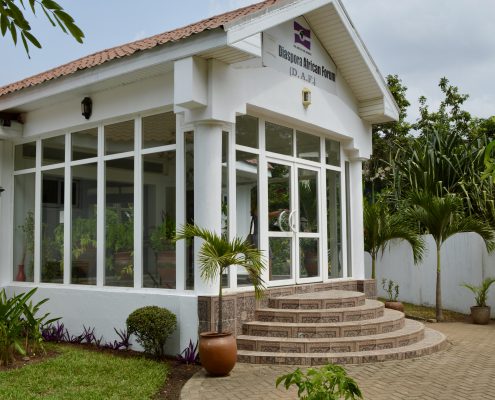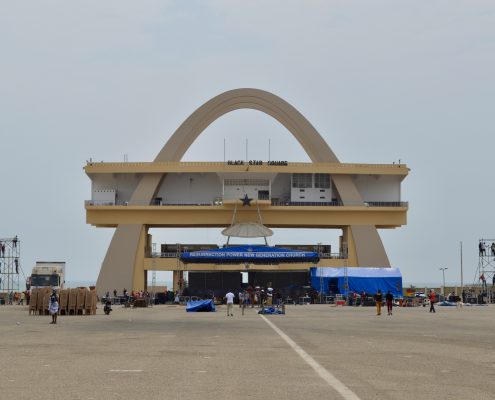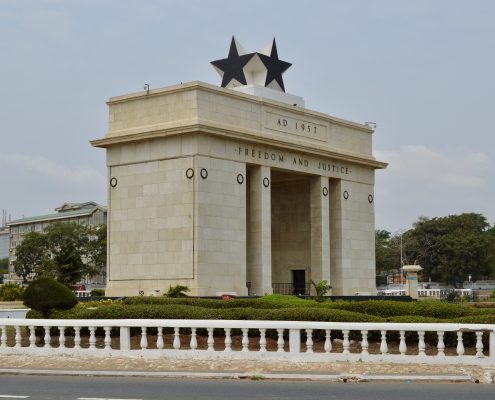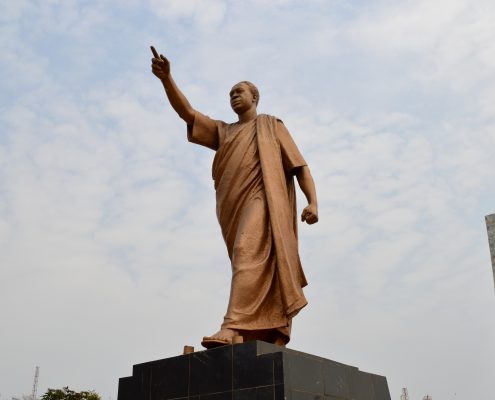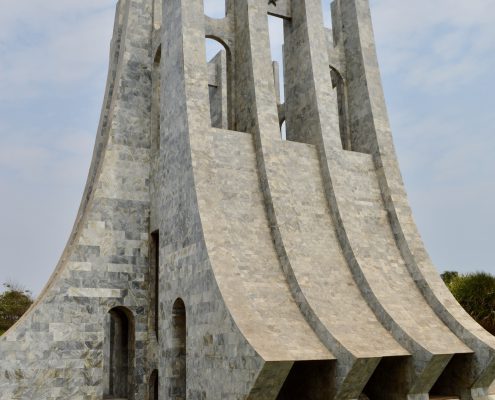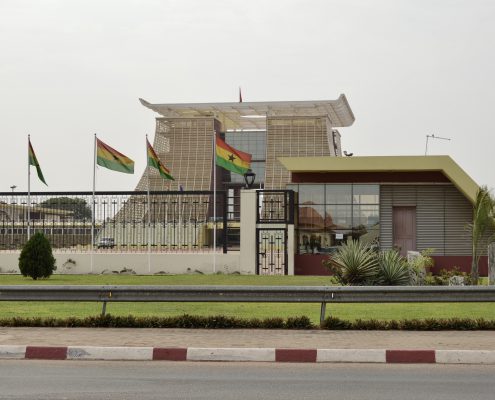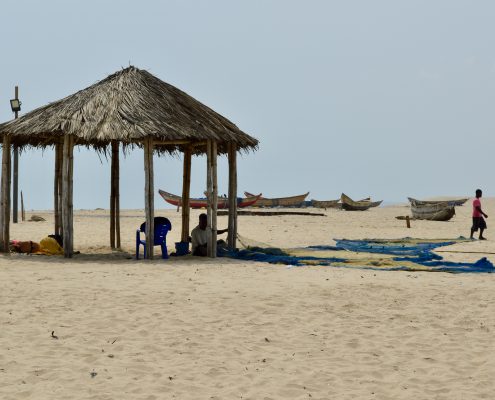By Ashley Young
Akwaaba! Welcome! It is the end of my first week in Ghana, and WOW it has been an adventure! Since arriving, I have been taking part in the UCEAP Ghana Orientation Class, a class that introduces students to the culture, history, economy, and politics of Ghana. Our UCEAP program staff, two Ghanaian student assistants, and a handful of professors from the University of Ghana, have been leading us through this practical and experiential course, which is a mixture of lectures, field trips, and personal interactions with the Ghanaian culture and people. Thus far, we have toured the University campus, acquainted ourselves with its surrounding neighborhoods, tasted many new foods, learned about Ghanaian culture, including the importance of dance and music, and explored the historical, social, and political contexts of the country we are living in.
While I have only been here one week, it is clear that studying in Ghana will be an eye-opening experience. One thought that has captured my attention so far is the fact that Ghana, and Africa as a whole, does not lack resources. Before I came here, I was of the opinion that Africa was without: without the basic materials and items needed to sustain a flourishing continent. My first impression of Ghana confirmed this opinion – from the impoverished street hawkers, who walk between cars at intersections selling goods like plantain chips, laundry soap, water, and eggs, to open sewage systems on the sides of roads, to begging children who follow and hold on to you as you walk to your destination, to the inconsistent flow of running water in the University dorms – all of these sights seemed to confirm that Ghana lacks the important resources needed to serve its people.
But this is not the case. AFRICA DOES NOT LACK RESOURCES. Ghana, in particular, is rich in fertile land for agriculture and cattle rearing, gold, diamonds, bauxite, timber, and even oil. Alack of resources is not the issue. The issue is access, and the efficient assemblage of resources to most benefit the country. One example of this issue was discussed in the orientation class: Ghana and Cote d’Ivoire (the country neighboring Ghana to the West) produce between them 60% of the cocoa in the world market. However, they only make 5.7% of the market profit share. This is an extreme inequity, and unfortunately, not an anomaly in Ghana or the greater African continent.While at times, it has been difficult to be a personal witness to so many political and economic development issues, the Ghanaian culture is rich and there is much beauty to be found!Below, I have attached some photos of the places we have gone:
All of these excursions have been facilitated by our UCEAP Program staff – Auntie Rose, Auntie Sharon, and Auntie Dorcas – as well as two Ghanaian students – Araba and JoJo. We call our staff our Aunties because in Ghanaian culture, the family extends far beyond the nuclear family that we generally acknowledge in the United States, and individuals call those older than themselves either “Auntie” or “Uncle” to show respect and/or signify a relationship. Additionally, the student assistants, Araba and JoJo, have received their names based on the day of the week they were born on. This is a traditional Ghanaian practice – Ghanaians believe that each day has a spirit associated with it, and that this plays into the character of the individual.
In fact, the integration of traditional Ghanaian culture into the more modern Ghanaian society is quite interesting! There are many practices and customs alive in Accra that I have never heard of before, many revolving around important milestones in life such as birth, puberty, marriage, and death. Already, we have been invited to both a traditional Ghanaian wedding and a naming ceremony for a new baby; I am sure I will get to experience many new traditional customs at these events!
There are many practices and customs alive iI am excited to learn more about Ghana, and excited to share it with you as I go along. Enjoy reading!
Best,
Ekua (MyGhanaian name!)


